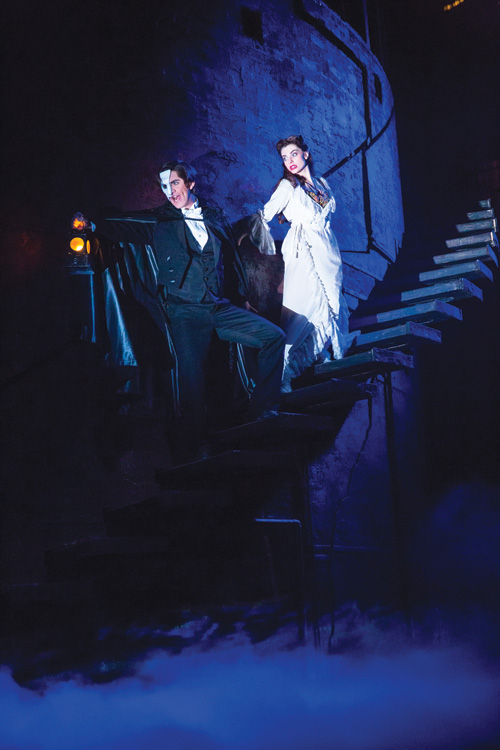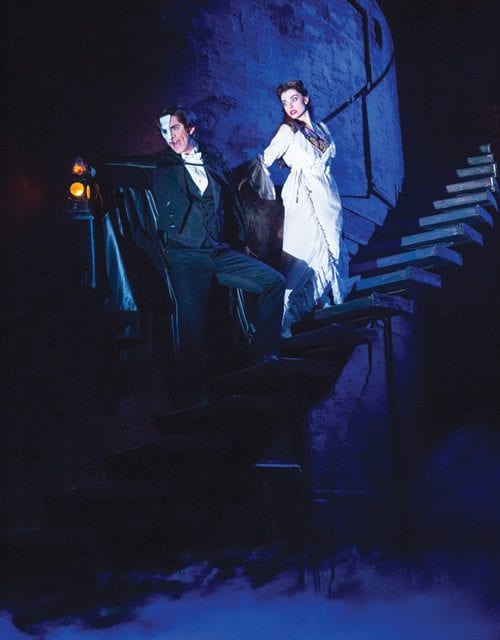 The version of Andrew Lloyd Webber’s The Phantom of the Opera, onstage at the Winspear through Aug. 24, feels like a fresher, hipper version of a musical that’s — gasp! — nearly 30 years old. Old things don’t usually seem younger, but when you add a flavor of steampunk and sex appeal, plus erase a few crow’s feet from the principal cast, it’s remarkable how much you can enliven a familiar story.
The version of Andrew Lloyd Webber’s The Phantom of the Opera, onstage at the Winspear through Aug. 24, feels like a fresher, hipper version of a musical that’s — gasp! — nearly 30 years old. Old things don’t usually seem younger, but when you add a flavor of steampunk and sex appeal, plus erase a few crow’s feet from the principal cast, it’s remarkable how much you can enliven a familiar story.
The plot — which liberally changes the original Gaston Leroux novel — involves a 19th century ingenue mentored by a mysterious ghost of the opera house, groomed to be his masterpiece … until she rejects him and he plots gruesome revenge. The Phantom has always been presented with melodramatic brio, with Svengali-like hand choreography that even Celine Dion would find excessive. He’s often breathless and spooookkky, a sad old hermit crossing over into insanity. But here he’s presented as youthful, energetic, determined. There’s real sexual electricity between him and Christine Daae, not some overwrought potboiler.
The weaknesses persist: The synthesizer arrangement on the title song still sounds dated, and the second act isn’t as tuneful or well-paced as the first. But it’s long overdue that someone reimagined this long-running juggernaut. It’s never too late to rediscover a classic.
Diana Vreeland was an intriguing combination of Katharine Hepburn, smoke-stained lounge singer, ageing geisha and George-Burns-in-drag-as-Easter-Island-totem in both look and sound. She was a homely woman, with middle-brow tastes, yet for nearly half a century she was the fashion authority in America — first at Harper’s Bazaar, then at Vogue, before being unceremoniously fired from the latter in 1971. That’s probably more information about her career than you’ll glean from Full Gallop at WaterTower Theatre, a frustratingly superficial if occasionally enjoyable one-woman show (with Diana Sheehan as the doyenne).
Set soon after her departure from Vogue, it’s part interactive audience monologue, part telephone call exposition that captures Vreeland’s idiosyncracies but not much more. “I’m a great believer in vulgarity. Bad taste is fine — no taste bores me,” Sheehan — her arms raised triumphantly like a referee following extra point — shouts with a flourish; she flourishes a lot in this show (“blue jeans are the greatest invention since the gondola!” is another), which hints at the woman’s personality but not her career. The second half, in fact, is a marathon of name-dropping. “No one gives a damn about authenticity if it’s ugly,” Vreeland declares. Maybe true; but a little substance wouldn’t hurt.
This article appeared in the Dallas Voice print edition August 15, 2014.


